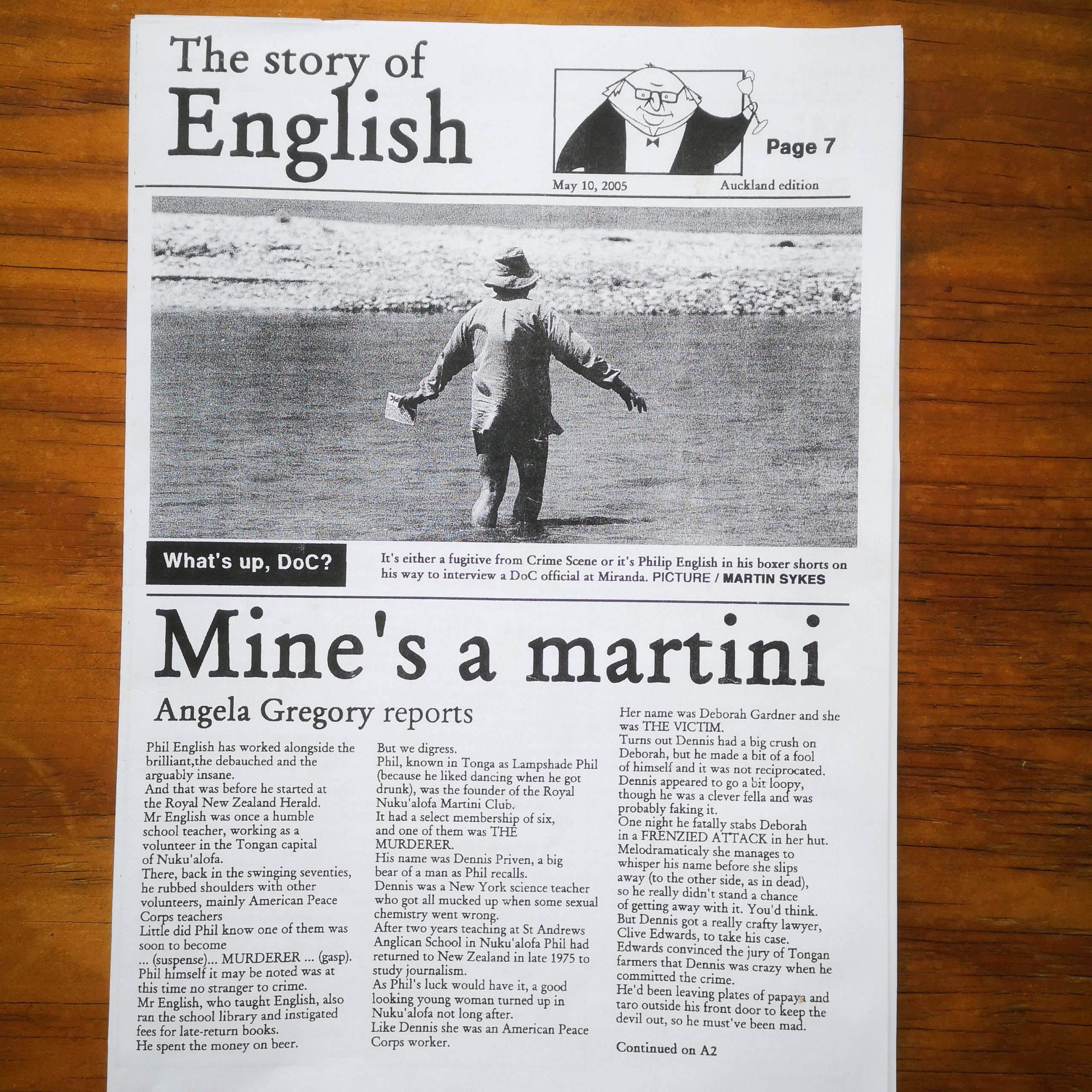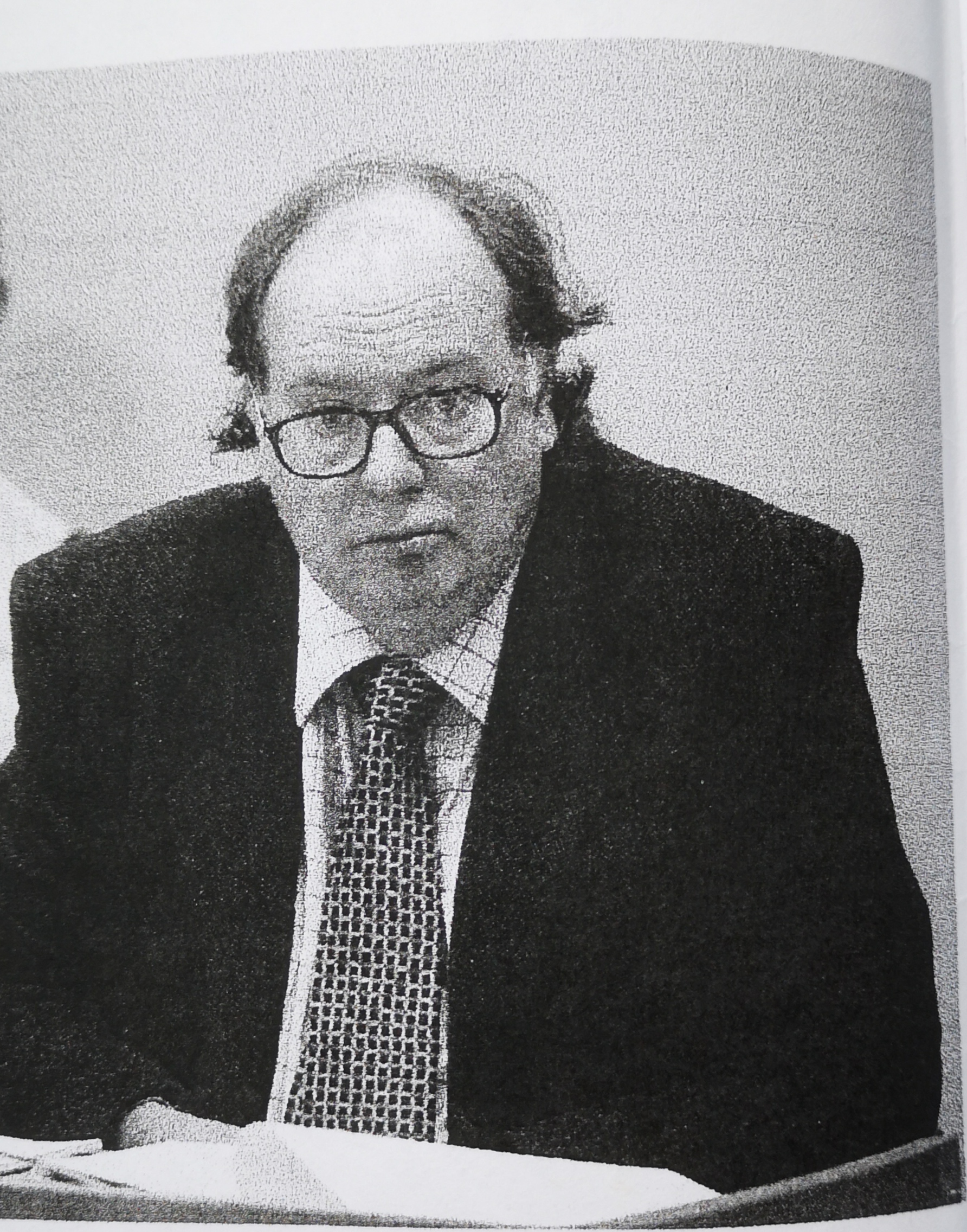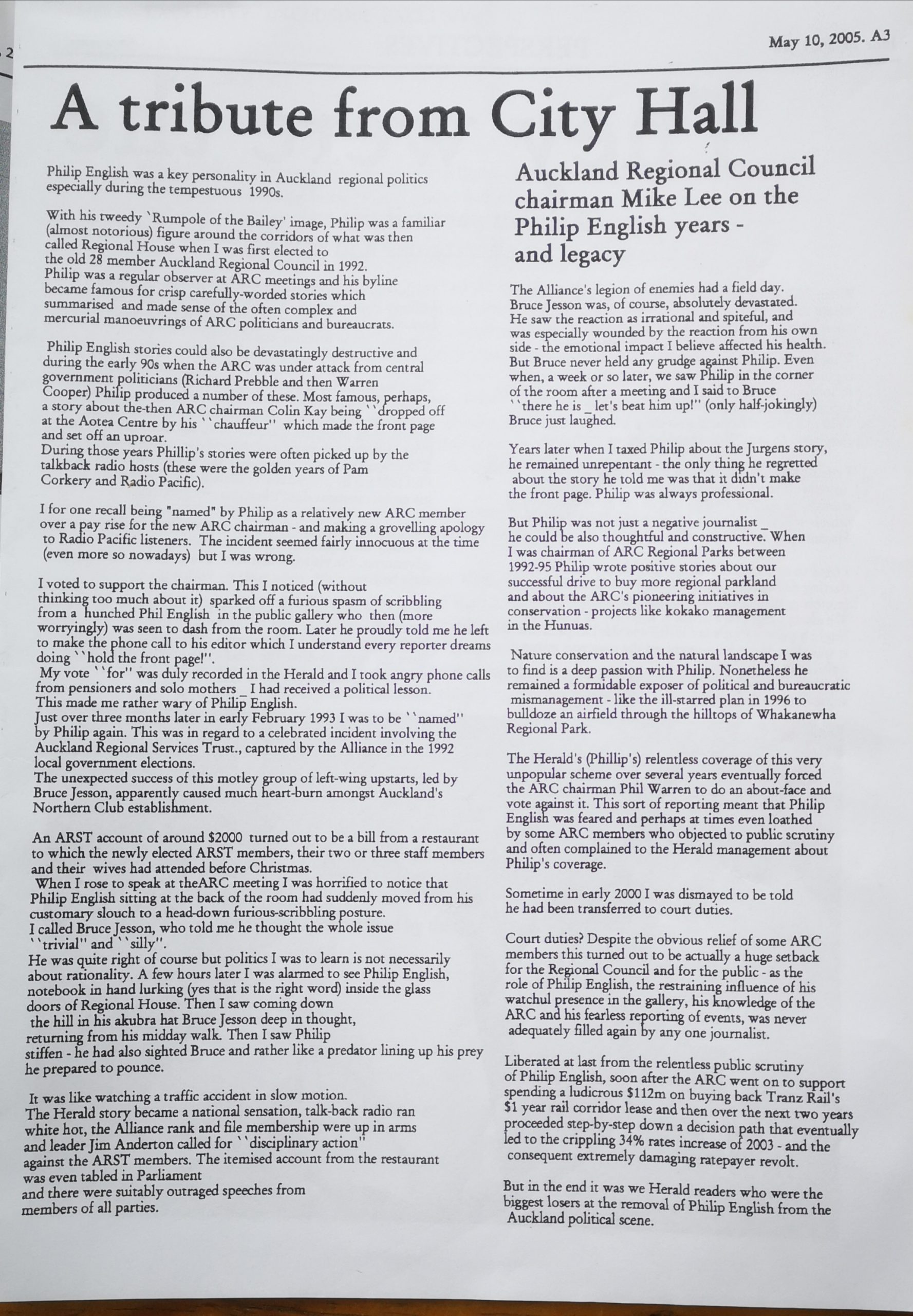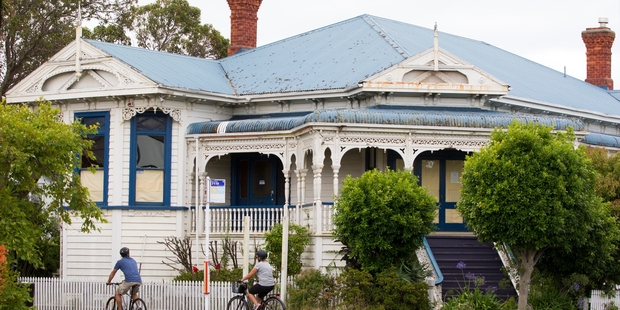Tribute to Phil English – former senior journalist NZ Herald
“Separation penetrates the disappearing person like pigment and steeps him in a gentle radiance.” Walter Benjamin.
I didn’t sleep that well last Friday night – I kept thinking of my friend Phil English – former political and conservation reporter at the NZ Herald whose funeral I attended on Friday afternoon.
When I was first elected to the old 28 member ARC in a by-election February 1992 Philip English was already a veteran reporter and a major personality on the Auckland scene – and had been for many years.
It was a major period of change for Auckland – with a hardline National government having introduced the harsh New Right ‘Mother of all Budgets’ was now intent on asset stripping and de-powering Auckland regional government.
Philip was a regular and very shrewd observer at ARC meetings and his by-line in the NZ Herald became famous for crisp, carefully-worded stories which made sense of the often complex and mercurial goings-on of ARC politicians and bureaucrats of that time.
With his tweedy ‘Rumpole of the Bailey’ image Philip was a familiar figure around the corridors of Regional House and though the name of the organisation had been recently changed to ‘ARC’, I had joined what was in effect the last months of the old Auckland Regional Authority – the ARA. The place was filled with an interesting (and often discordant) mix of personalities – many of them ‘household-name’ local politicians like Keith Hay, Lindo Fergusson, Colin Kay, Jean Sampson, Alan Brewster, Gary Taylor and many others. (See http://52.62.142.163/2008/10/strangers-in-the-21st-century/#more-27)
During those years Philip’s stories – especially those relating to the drama around the government’s attempted privatisation of the ARC owned Ports of Auckland were often on the front page and on the billboards in the street. They were often picked up by the talkback radio hosts (this was the golden years of Pam Corkery and Radio Pacific) which amplified their reach and political impact.
Phil covered all those rather tumultuous stories of that time. The major re-organisation of Auckland regional government, the government attempt to get rid of regional parks (which Phil’s reporting helped save), the demise of the old ARA, the Regional House affair, the setting up of LATES, the attempted privatisation of the Ports of Auckland, the public revolt which stopped it, the rise and fall of the Alliance, the Great Auckland Drought, the Waikato Pipeline, the divestment of ARC assets and the establishment and eventual abolition of the ARST and much more.

When he left the NZ Herald in 2005 Philip’s colleagues paid him the rare compliment of producing a special ‘newspaper’ in his honour. They gave me (a politician!!) the honour of writing an article for it.
Phil was the master of the political exposé. He had a nose for a good story – and the killer instinct to drive it home. More often than not his by-line was accompanied by bold headlines. Such was his reputation that he was one of those journalists who could hurry out of a meeting, find the nearest phone (on a wall or at a reception desk – mobiles not then being in general use) dial up the Herald editor or chief reporter and say ‘Hold the front page’ – and the front page would be held. During this period he was the most famous and respected – and in some quarters most notorious – reporter in the country.
But there was more to Phil than that – while he was good at writing the devastating negative story – but he could also write positive stories – if there was something positive to write about. As well as being the Herald’s regional political reporter Phil was also the environment reporter. It was evident that Phil had a genuine interest in natural history. He loved the idea of protecting Auckland’s natural landscape – hence his enthusiasm for regional parks – and he had a knowledgeable interest in – and a passion for conservation of endangered birds. I only learned at his funeral that he had been taught at Kings College by the renowned ornithologist Dick Sibson who was on the staff at Kings from 1939 to 1971. That’s what I thought was interesting about Phil – he could write both negative and positive stories and that perhaps is revealing of the writer – and perhaps editorial policy of the time. While one would accept human nature and therefore human affairs being what they are, that most newsworthy stories tend to be negative, it seems that nowadays there is no room for positive stories at all. And if there are – they must treated with the deepest scepticism and if covered be thoroughly laced with negativity, and if that cannot be achieved – then they are ignored altogether (see my previous post on Shakespear Open Sanctuary). But it wasn’t always like that.
By the late 1990s Philip had become despite his effectiveness – or because of it – a somewhat vulnerable figure. What some detractors saw as eccentricity – was actually a quality they were clearly unfamiliar with – style.
Over the years Phil had made some influential enemies which I suspect led to the premature termination of his career.
Here is something I wrote about Phil in a little souvenir publication his colleagues Simon Collins and Michele Hewitson and others put together when left the Herald in 2005.
“But Philip was not just a negative journalist – he could be also thoughtful and constructive. When I was chairman of ARC regional parks committee between 1992 – 95 Philip wrote positive stories about the ARC’s successful drive to buy more regional parkland and about our pioneering initiatives in conservation – projects like kokako management in the Hunuas. Nature conservation I was to find is a deep passion with Philip.
Nonetheless he remained a formidable exposer of political and bureaucratic mismanagement – like the ill-starred plan in 1996 to bulldoze an airfield through the hilltops of Whakanewha Regional Park. The Herald’s (Phil’s) relentless coverage of this very unpopular scheme over several years eventually forced the ARC chairman Philip Warren to do an about face and vote against it. This sort of reporting meant that Phil English was feared and perhaps at times even loathed by some politicians who objected to public scrutiny and often complained to the Herald management about Phil’s coverage.”
Sometime in early 2000 during a private meeting with the ARC chairman I was dismayed to be told by Philip Warren in his brassy voice (and with a certain amount of glee I thought) “by the way we won’t be seeing Mr English around here anymore – he’s been transferred to court duties”. Court duties??
I recall the sinking feeling when after calling Phil – and telling him what I had heard, he expressed surprise…
To quote again from my 2005 article.
Despite the obvious relief of some thoughtless ARC members this turned out to be actually a huge set back for the Regional Council and for the public – as the role of Phil English, the salutory influence of his consistent presence in the gallery, his knowledge of the ARC and his fearless reporting of events, was never adequately filled again by any one journalist.
Liberated at last from the relentless public scrutiny of Philip English, soon after the ARC went on to support spending a ludicrous $112m on buying back Tranz Rail’s $1 year rail corridor lease and then over the next two years proceeded step-by-step down a decision path that eventually lead to the crippling 34% rates increase of 2003 – and the consequent extremely damaging ratepayer revolt.
And when you think about it – because of the twists and turns of politics – and of fate, rather ironically that same rates revolt opened the way for what another Herald reporter (one of Phil’s successors Anne Beston) referring to me (accurately enough) as “unlikely Lee” (though I would have preferred ‘Lee unlikely’) to become chairman of the ARC.
So Phil English left the NZ Herald – and a job which seems to have been the love of his life – his vocation. A role his unique talents seemed to match perfectly. Afterwards we managed to arrange for Phil to do some work for the ARC as did Watercare. But it seemed being a PR man churning out press releases didn’t seem to answer. That was understandable, Phil was a specialist in his field and he clearly relished working as a senior journalist for the leading newspaper in the country. That was his métier – there was no other. I think leaving the Herald broke his heart.
After that it seemed to be all down hill for Phil. He soon contracted a rare and deadly neural disease PSP which progressively laid waste to him. He had to leave his flat in his beloved Parnell and sell his favourite Wolseley car. I kept in touch and I always used to ensure he was invited to the annual ARC media Christmas party. But it was terrible and very sad to see what the illness did to him. When I last went to see him – he was almost unrecognisable as the rolly-polly Phil. But his eye was bright and his handshake firm, his mind still sharp. He couldn’t really speak – or not that I could understand him. Thankfully this image has not erased the earlier pictures of Phil as we all remember him from my mind.
So I remember him as he was in his Glory Days, when he was a master of his trade and I a novice in mine. I remember him at the ill-starred (now deserted – was there some sort of curse?) ARC Regional House – sitting at the back of the committee room number one, slouching more often than not, in the big comfortable chairs they used to have then, or in the debating chamber in one the gallery seats along the side. In winter and for most of the year he would be wearing a sports jacket of Harris Tweed with a dark knitted tie – sometimes loosened at the neck. The ever-present brolly would be close at hand. A stern expression – almost a glower would be fixed on his face as he peered around the chamber. As I say, often he would slouch in the seat until something newsworthy happened or was said – then he would spring into action, leaning well forward, face close to the table, pen scribbling furiously. In summer I can picture him more casually dressed in blue shirt and light moleskin trousers – perhaps at some regional park – or on some Gulf island on the trail of a conservation story. The stories were impeccably accurate – words carefully chosen – the writing succinct in its economy.
So his long Gesthemane came to an end and he passed away last week. I went to the funeral at Purewa on Friday afternoon. (what a sensible time for a funeral, I thought, I must make mine at 3pm on a Friday). It was a big turn-out, the English family and friends, led by Simon and Jane Moore, most of his Herald colleagues from those days were there – a few of the veteran members of the ARC/ARA David Olsen, David Hawkins, Paul Walbran and myself and a contingent from Watercare.
It was a warm and moving ceremony.
An impressively eloquent, heartfelt eulogy was presented by his life-long loyal friend Simon Moore, with tributes from his niece Lucy and his elder brother David. I hope they are published or put on a website somewhere. Simon’s eulogy in particular was a superb tribute to Phil. There was a hearty rendition of William Blake’s Jerusalem and then at the end (Phil obviously selected these songs) Kum Ba Yah.
The first hymn evoked his beloved Kings and all of the tradition that goes with that – and the second tells us Phil grew up in the sixties and still retained the pure-hearted idealism of those times still within him. I have had a bit to say lately, criticising the Baby-Boomers but Phil English (and Simon Moore) remind us there are still people who represent the very best and noblest of that once promising generation.
In closing I must note that something about Phil English always reminded of my friend the late Bruce Jesson. Both were small men physically, both were excellent writers in their different genre; both were key players in the momentous Auckland political scene of the 90s (their all-too-short hey-day); both had recognisable ‘trade marks’ (Bruce – the wide-brimmed akubra hat, Philip – the Harris Tweed jacket, brolly etc); both were sociable drinkers, of the old school who loved the conviviality and hilarity of it all; and both were quite interested in nature – though tended not to advertise it; both were stricken with fatal illnesses relatively young in life; and proving NZ is not a meritocracy, despite their unquestioned talents both were terminated prematurely from their respective much-loved publications Metro for Bruce, NZ Herald for Phil
There were a lot of similarities – but that is not in the end why I find them similar persons. At Bruce’s funeral in 1999, I was struck by the number of women mourners – and I realised that why women, intelligent women especially, loved Bruce, was not just for his exceptional intelligence but I think women sensed a remarkable gentleness within him. I think that was the same with Philip. The other thing they had in common was that they died much too early – leaving us to mourn that life will never be as fun without them.
Here is the article I contributed to the special newspaper his Herald colleagues produced in his honour:
The last word should go to his Herald colleagues, his fellow journalists and the tribute below says it all really.
Wednesday, 13 July 2011
ENGLISH, Phil. On 11 July 2011. Journalist, gentleman, tireless reporter of city affairs for the New Zealand Herald. Lover of brollies, Tongan police brass bands, Wolseley cars, mischief. Gracious host of legendarily lethal martini parties. Phil, your former colleagues at the New Zealand Herald will remember you with admiration and love. What fun you were.
Published in: New Zealand Herald
Philip Russel English – Journalist – 4 October 1953 – 11 July 2011





Very sad to hear about Phil’s passing. He was something of a legend when I joined the NZ Herald’s Auckland newsroom in 2000. Stories were told in hushed and admiring tones about Phil’s ablutionary antics on a boating excursion, his extraordinary cocktail parties, and about his ability to find an 11-year-old press release within a few seconds amid the chaotic shambles of his desktop.
RIP Phil, from a colleague.
Thanks Scott,
Sadly, we won’t be see seeing the likes of Phil English around anytime soon.
Kind regards
Mike
Thank you so much for taking the time to write that, Mike.
I was a fairly new journo at the Herald 2000 – 2003 and Phil was such a great character. Was sad to hear of his illness. Facebook has been alive with chatter re his passing and the memories shared by younger pups from the Herald newsroom gone by … but though he had 20 years or so on many of us, it never felt that way. He was young at heart, quick with a smile (and a pen and paper for a quote, as you note), and yes a lethal mixer of martinis … Katherine.
Thanks Katherine,
I recall he was very impressed with (and actually quite fond of ) what he called the ‘bright young things’ at the Herald in those days. I suspect he was thinking of people like yourself. In fact if my memory serves me right one of the ‘bright young things’ about that time did his phone mail box voice message for him. Cheers, Mike
Thanks from me too for taking the time to write this obit for Phil. You did something I couldn’t do. I was so saddened by Phil’s passing. I dug out one of Phil’s letters to me when he was working on the Hampshire Chronicle in 1978 during a spell of OE:
“Dear Mike, I’m bloody pissed off. I’m haunted by the fact that I’ve just lost an important phone number. It’s the contact number of a man who got into the national press this week and which resulted in me having my first appearance on British television. It had to do with a man who owned a horse with one ball smaller than the other and so consequently the animal has be either put down or slaughtered. He doesn’t want it castrated so it will be put slaughtered. I will probably be invited to its slaughter next week unless he takes it to London and has it killed oustide the Ministry of Agriculture. He’s that sort of chap. Everybody loves and animal story here and hundreds of reporters and photographers turned up at the press conference he organised. Here it’s animals and the Royal Family.”
That was Phil – as he might say himself, he was that kind of chap.
Ha Ha! Marvellous. Why is it that its always the good who die young? Thanks for this Mike and my apologies for not responding earlier – have been out of the country on leave in the Cook Islands.
Hi Mike,
I really enjoyed reading your tribute to Phil and had to wipe a few tears at the end. I was so sad to hear of Phil’s death, too late to attend the funeral. Although I had lost touch with him when I left the Herald and went overseas, I always had very fond memories of him as a kind, wise and witty desk mate, rolling into the Herald garage in the Wolsely and spending his days half hidden behind dangerously high towers of reports and press releases. He was one of the Herald’s true characters (in a place filled with characters) and someone who walked his own path in life. He was truly a lovely man. Thanks again Mike.
Thanks Karen,
reading your comments in turn makes me sad.
Thank you for a wonderful tribute. Go well.
Mike
Thank God for Google , which eventually rounds out the circles we failed to complete. A chance search result forever answered the question “What became of Phillip English” ? Somehow I had imagined him writing a book , taking that ‘rough first draft of history” he prepared daily for many years & delivering us the polished version , helping the rest of us make sense of the events of our generation & the part we played in them & how they fitted in to the wider scheme of things .
The period 1988 to 1993 brought me in regular contact with Phil English at those Regional Council meetings ; both us us occupying the public seats, which were often otherwise unoccupied . It was easy to miss the fact that he was there , in the corner at the back – until something in the discussion grabbed his attention.
Thanks Ian – missed this before. The sadness about Phil does not go away. The Herald never really replaced him – I guess like Bruce Jesson he was pretty unique. I thought of him when they released kiwi on Motutapu. Wouldn’t he have been thrilled. As I said the sadness never goes away.